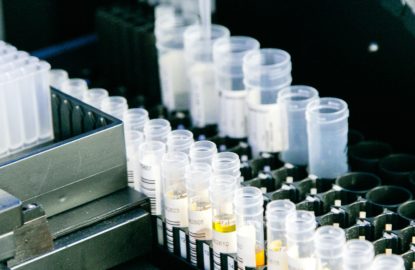
Your lungs play a vital role in supplying your body with the oxygen it needs to function properly. If you’ve ever experienced breathing difficulties or have been diagnosed with a respiratory condition, your healthcare provider may recommend a pulmonary function test (PFT) to assess the health and efficiency of your lungs. In this blog, we discuss what a pulmonary function test is, how it works, and why it’s essential for diagnosing and managing various lung disorders.
Understanding Pulmonary Function Tests
A Pulmonary Function Test, often abbreviated as PFT, is a series of non-invasive tests that assess how well your lungs are working. These tests measure various aspects of lung function, such as how much air your lungs can hold, how effectively you can inhale and exhale, and how efficiently your lungs transfer oxygen into your bloodstream.
PFTs are crucial in diagnosing and managing respiratory conditions, including asthma, chronic obstructive pulmonary disease (COPD), interstitial lung disease, and more.
Types of Pulmonary Function Tests
There are several different types of PFTs, each designed to measure specific aspects of lung function. The most common PFTs include:
Spirometry: A spirometry test measures lung volumes and capacities. During this test, you’ll be asked to take a deep breath and then exhale forcefully into a machine called a spirometer. This device records data on how much air you can expel from your lungs and how quickly you can do so.
Lung Volume Measurement: This test measures the amount of total lung capacity, functional residual capacity, residual volume, and vital capacity. It provides insights into the amount of air your lungs can hold at different stages of a breath.
Diffusion Capacity Test: This test evaluates how effectively oxygen moves from your lungs into your bloodstream. It can identify issues like impaired gas exchange seen in conditions such as pulmonary fibrosis.
Peak Flow Measurement: This is a simple test that measures the maximum speed at which you can exhale air which can be used to monitor asthma and breathing problems.
Arterial Blood Gas (ABG) Test: This test measures the levels of oxygen and carbon dioxide in your arterial blood, providing crucial information about gas exchange and the pH balance in your blood.
Why Are Pulmonary Function Tests Important?
Pulmonary function tests serve several important purposes:
Diagnosis: PFTs can help healthcare providers diagnose respiratory conditions accurately. For example, they can differentiate between asthma and COPD, which may require different treatment approaches.
Monitoring: PFTs are invaluable for tracking the progression of chronic lung conditions and the effectiveness of treatment. Regular PFTs can help identify worsening lung function and guide adjustments to your treatment plan.
Preoperative Evaluation: PFTs can be used to assess a patient’s lung function before surgery to determine their risk for postoperative complications.
Disability Evaluation: In some cases, PFT results are used to evaluate a person’s eligibility for disability benefits due to a respiratory condition that impairs their ability to work.
Research and Clinical Trials: PFTs are essential tools for researchers studying lung diseases and for participants in clinical trials evaluating new treatments and interventions.
Pulmonary function tests are valuable for assessing lung health and diagnosing respiratory conditions. They provide essential data for healthcare providers to make accurate diagnoses, develop treatment plans, and monitor the progress of patients with lung diseases. Contact CannAmm today at 1-800-440-0023 to book testing.







